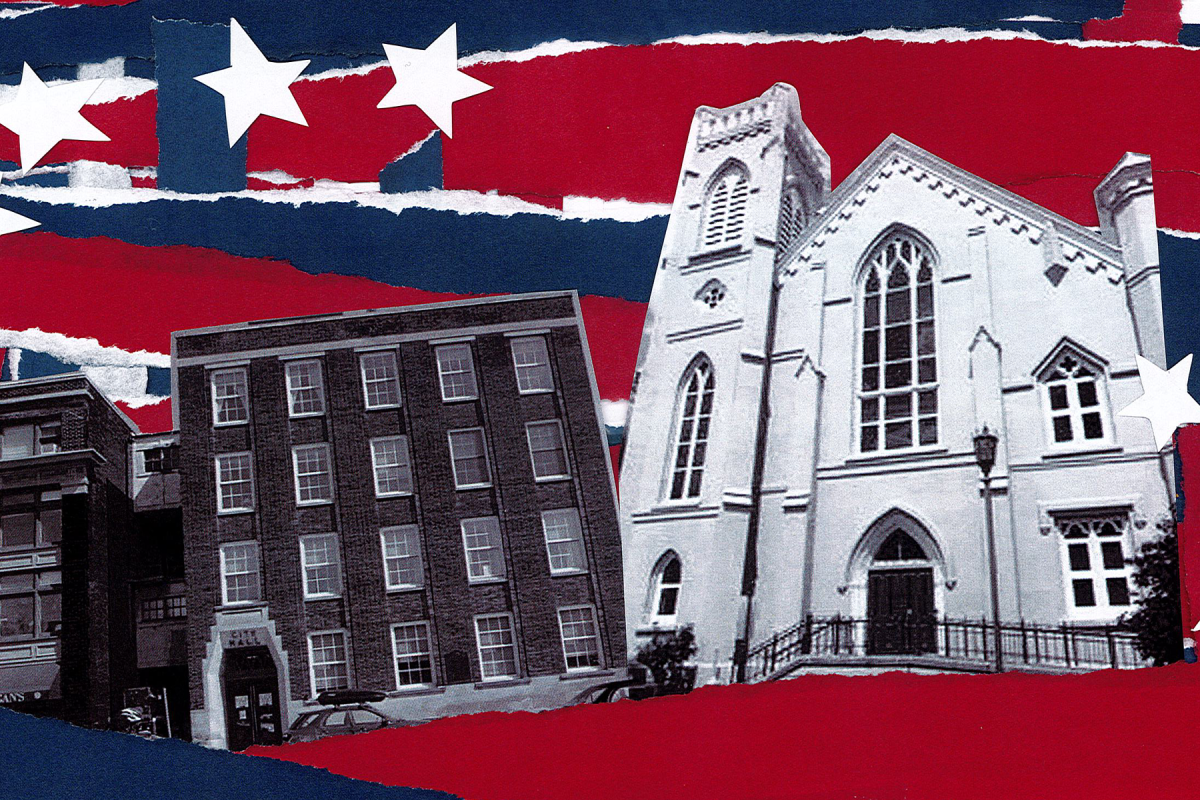Ithaca College is preparing to allow students, faculty and staff back on campus for Spring 2021.
La Jerne Cornish, provost and senior vice president for academic affairs, and Rosanna Ferro, vice president of the Division of Student Affairs and Campus Life, sent an email to the campus community Oct. 27 detailing areas of interest for the return to campus. The email came a day after an Oct. 26 student–and–family meeting discussing academics for Spring 2021 and echoed many of the same plans.
Spring Semester and Academics
As previously mentioned during the All-Student Gathering on Oct. 15, the spring semester will begin with remote instruction Jan. 25 through Feb. 5 while students move in. In-person instruction begins Feb. 8.
The full winter 2021 and Spring 2021 course schedules will be available Oct. 30 on HomerConnect and registration for classes opens Nov. 20, Vikki Levine, registrar in the Office of the Registrar, said during the Oct. 26 meeting.
Students will be allowed to attend all classes remotely. Students who chose to take classes remotely can live in their residence halls, permanent home addresses or off-campus housing if approved.
Levine said there will be four modalities offered for spring semester classes, all of which will be available to see in the course catalog. The four modalities are 100% on-campus required, online asynchronous, online synchronous and hybrid online with a face-to-face option.
Students will also be able to take a free three-credit class in either winter 2021 or summer 2021, said Jeane Copenhaver-Johnson, associate provost for academic affairs, during the meeting.
Copenhaver-Johnson said the Integrative Core Curriculum (ICC) is currently being reevaluated and that there will be no substantial changes for ICC requirements made for Spring 2021. However, there may be changes for Fall 2021, she said.
Levine said that there will be events the week of Nov. 30 for students who deferred their enrollment to talk with the Office of Residential Life, the Office of Student Financial Services and academic representatives about the spring semester. There were 143 freshman and transfer students who deferred enrollment for Fall 2020. Typically, approximately 20–30 students defer enrollment.
During the Oct. 26 meeting, Ferro addressed student concerns about Zoom fatigue and mental health. Students can continue to use mental health services, like personal meetings and group sessions, offered by the Center for Counseling and Psychological Services throughout the fall semester.
Keith Kaiser, interim dean of the School of Music, said during the meeting that students will be able to collaboratively play in person in music ensembles in the spring. He said for instrumental ensembles there will be distance among players, and bell covers and air purifiers will be used.
“We will follow a schedule of playing and then letting the room settle and letting the air filtration system work,” he said.
However, he said there will not be a lot of large group singing because it is a “superspreader event.”
Linda Petrosino, dean of the School of Health Sciences and Human Performance, said during the meeting that lab classes for Spring 2021 are listed as hybrid, meaning students will have the ability to be in the lab.
Jack Powers, interim dean of the Roy H. Park School of Communications, and Melanie Stein, dean of the School of Humanities and Sciences, both said during the meeting that students who need to be in studios will have the opportunity to do so. Alka Bramhandkar, interim dean of the School of Business, said that she is looking forward to seeing students back on campus.
Move-In Plan and Restricted States
Phased move-in for all students will take place from Jan. 25 to Feb. 5. Freshman and transfer students will move in Jan. 19, 20 and 21 and will participate in a spring welcome before other students move in, according to the email sent Oct. 27. Student-athletes will also have the option of arriving on campus early, but this will depend on a decision surrounding when winter sports will be held. Students will receive an email Dec. 7 with more information regarding move-in.
The college’s three-year residency requirement is still expected for all students who will be returning to campus and have not received previous authorization to live off campus, the email said. However, there will be a one-semester exception for students who signed a yearlong lease before Oct. 1 to live in Ithaca for the fall semester.
The college was not going to allow students from New York state’s COVID-19 Travel Advisory List to return to campus for Fall 2020. For Spring 2021, students from restricted states or level two or three countries can make arrangements to quarantine for 14 days in either New York state or a state or country not on the advisory list. Students from these states or countries will have to submit a form to the college showing they complied with quarantining rules. Currently, 39 states, Guam and Puerto Rico are on the travel advisory list.
Students who are unable to find their own place to quarantine will be allowed to do so on campus. The college will have 50 rooms available for students to quarantine in. Currently, Emerson Hall is being used for quarantine and isolation.
Communication regarding quarantine compliance and applying to quarantine on campus will be available in the next few weeks.
Ferro said during the meeting that the college is encouraging students to not travel home because of the risk of spreading COVID-19 in and out of Ithaca.
COVID-19 Testing and Health Protocols
While all students quarantine for 14 days prior to arriving on campus, students are also asked to get tested for COVID-19 if possible, according to the email. Students who test positive cannot return to campus until they are released from isolation by their health departments.
Upon arriving on campus, students will be tested in coordination with the phased move-in plan. Surveillance testing will also occur throughout the semester for students, faculty and staff who access campus. Students are also encouraged to get the flu vaccine prior to arrival.
Students, faculty and staff will be required to sign the Community Agreement if they have not already done so.
Bill Guerrero, vice president for finance and administration, said during the meeting that classrooms will be frequently cleaned. Classrooms will not be cleaned after every class, but there are Centers for Disease Control and Prevention guidelines that will be followed for cleaning rooms, Guerrero said.
Copenhaver-Johnson said during the meeting that because of reevaluating classroom capacities, students may have A or B days. She said large classrooms that hold 100 students can now only hold approximately 30.
She said there may also be seating charts made by professors to allow for proper distancing among students. Copenhaver-Johnson said she has been collaborating with Student Accessibility Services to discuss how students with accommodations will be able to have the accommodations they need in the newly configured classrooms.
Campus Experience and Ongoing Communications
Classrooms, dining halls, the Ithaca College Library, fitness facilities and other indoor spaces will be reconfigured to comply with physical–distancing standards. The number of people allowed in these spaces will be limited. Spring 2021 course syllabi will contain more information about classroom health expectations, according to the email.
Cornish and Ferro said the college will follow directions from public health and government officials should there be an increase in cases when students return. This could include shifting to a “shelter–in–place,” which means students would remain on campus but all classes would be held remotely. A campus shutdown means all students would have to return to their permanent residences and the college would shift to completely online learning like in March.
Guerrero said during the meeting that dining halls will be open but will be operating primarily with grab-and-go options rather than seating inside.
There will be a student and family gathering Nov. 5 to further discuss Spring 2021 move-in and health and safety expectations.









